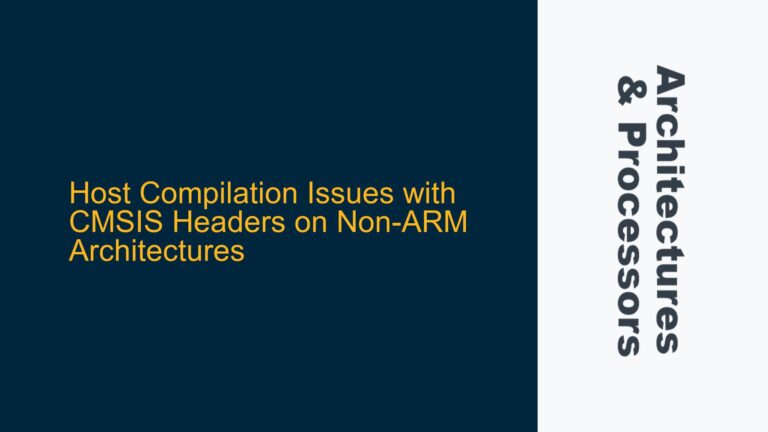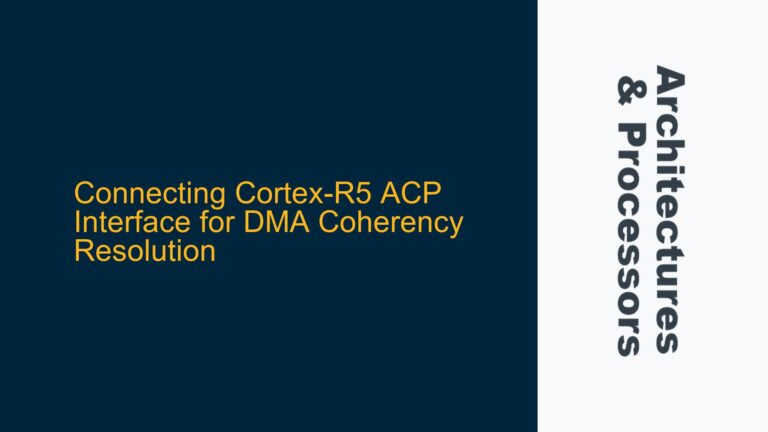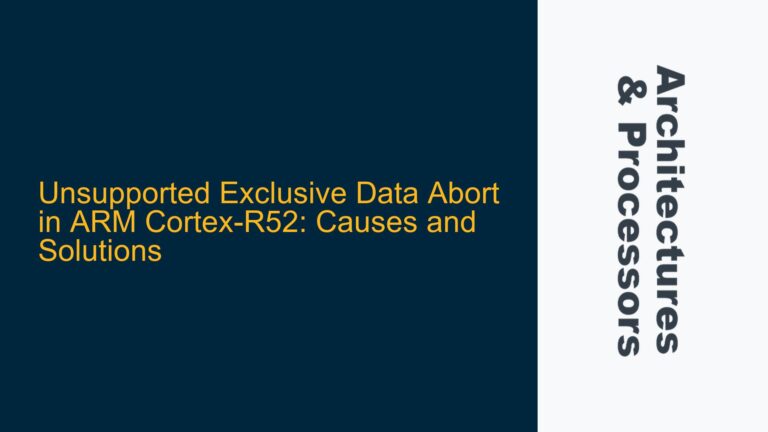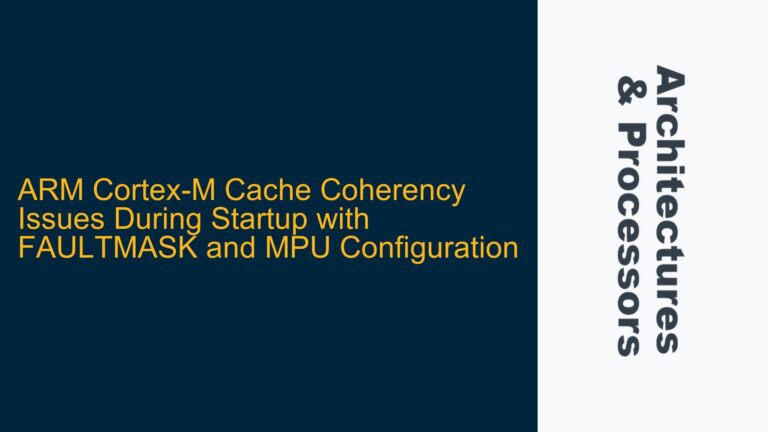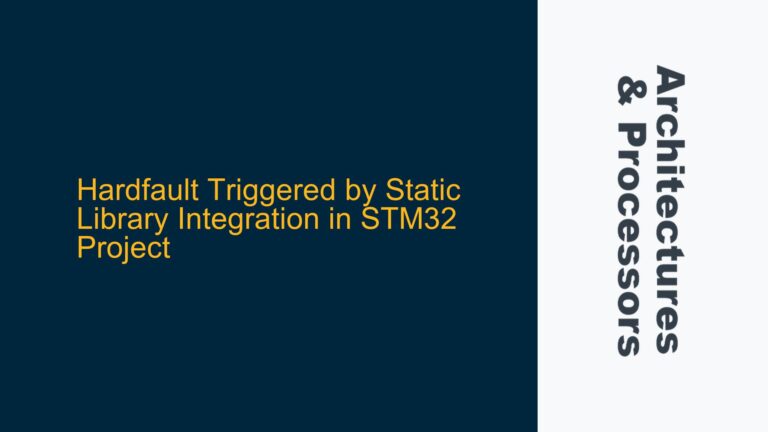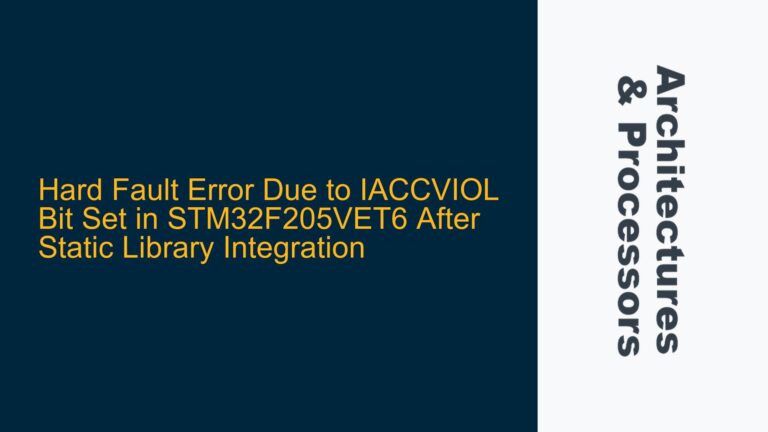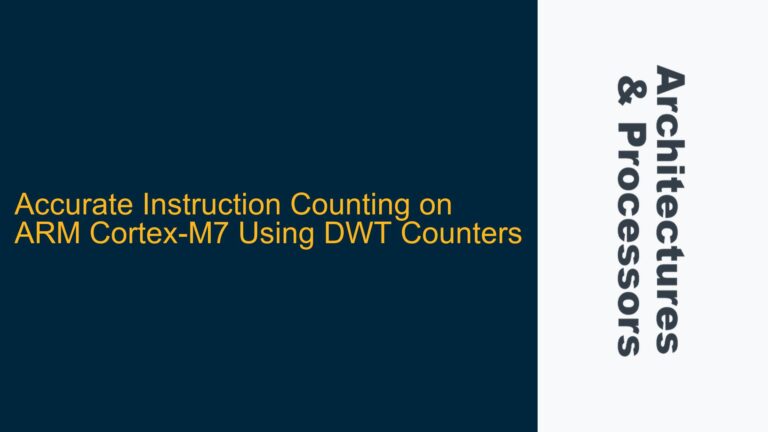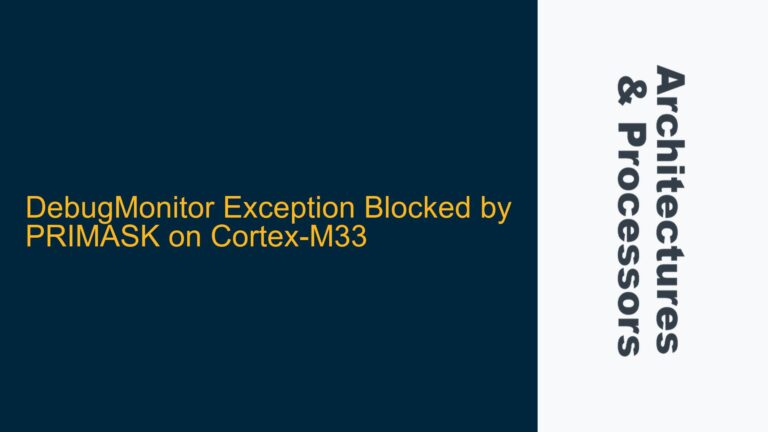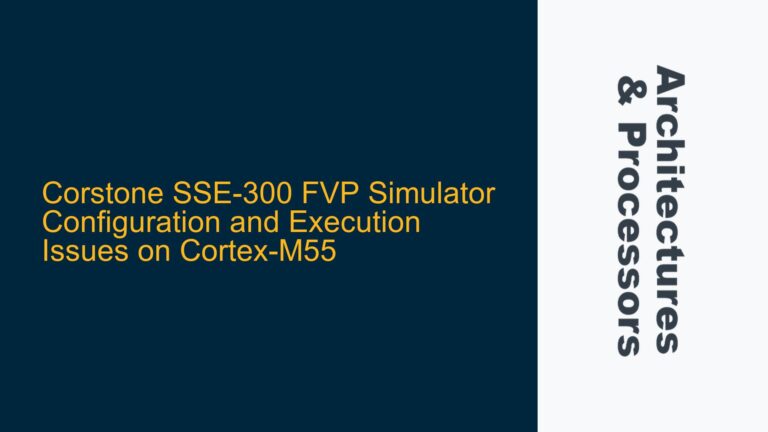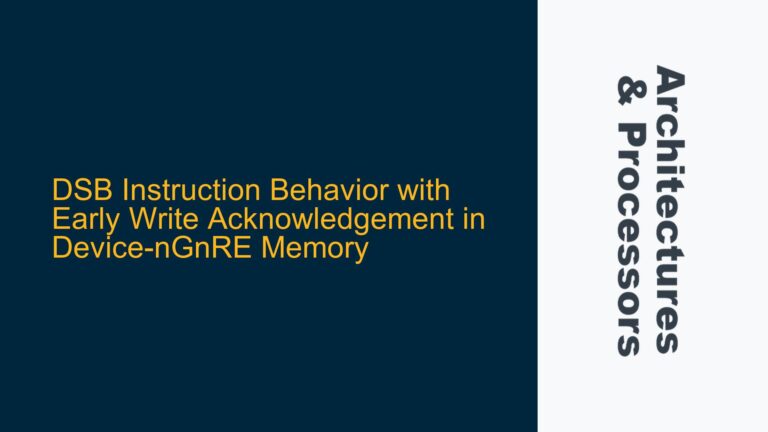Host Compilation Issues with CMSIS Headers on Non-ARM Architectures
ARM Cortex-M4 CMSIS Header Function Definitions Causing Cross-Compilation Failures The core issue revolves around the challenges of compiling code that includes CMSIS (Cortex Microcontroller Software Interface Standard) headers on a non-ARM host system, specifically an Intel-based laptop. The CMSIS headers, particularly those for the Cortex-M4 and GCC, define a multitude of functions directly within the…
